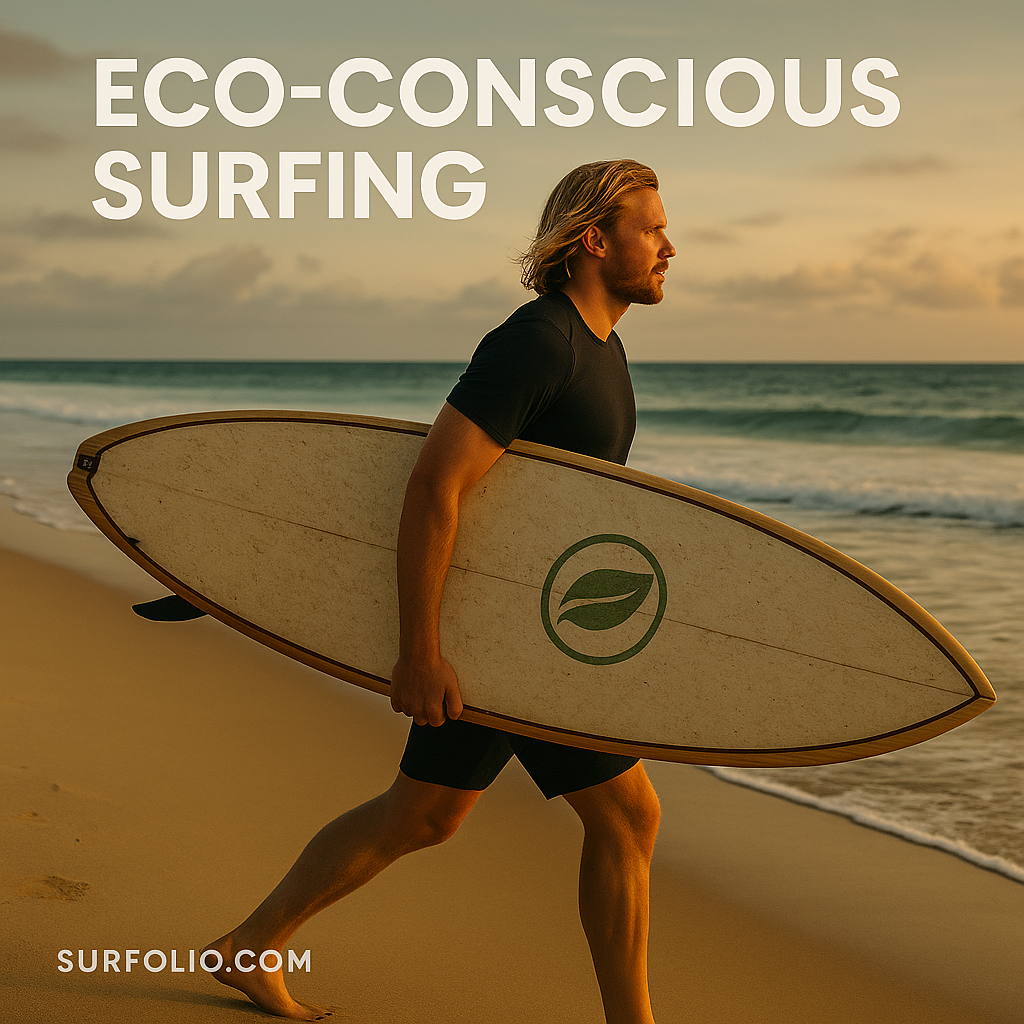
Surfing has always been about harmony with nature—the feeling of flow, connection, and respect for the ocean. But as the world faces environmental challenges, surfers are realizing that simply loving the sea isn’t enough. Protecting it is part of the ride. From recycled surfboards to ocean-cleanup movements, eco-conscious surfing is transforming the culture from the inside out.
A Shift Toward Sustainability
For decades, surfing carried an image of natural living, but the reality wasn’t always green. Traditional surfboards, wetsuits, and waxes were often made from petroleum-based materials that contributed to pollution. In recent years, however, the surf community has undergone a powerful shift toward sustainability—driven by both awareness and innovation.
Surfers are no longer just wave riders—they’re becoming ocean stewards.
Eco-Friendly Surfboard Revolution
Conventional polyurethane (PU) surfboards are notoriously toxic to produce and hard to recycle. But today, many surfboard shapers are leading an eco-revolution with greener materials such as:
- Recycled EPS foam blanks
- Bio-resins made from plant-based sources
- Bamboo and hemp fibers for reinforcement
- Algae-based foams as sustainable alternatives to petroleum
Brands like Firewire, Notox, and EcoBoard Project are proving that performance doesn’t have to come at the planet’s expense. These eco-boards are durable, high-performing, and reduce environmental impact—without sacrificing stoke.
Sustainable Surf Gear and Apparel
Eco-conscious surfing goes beyond boards. Wetsuit manufacturers like Patagonia, Vissla, and Picture Organic have developed neoprene-free wetsuits made from natural rubber (Yulex) and recycled materials.
Surf apparel brands are also adopting closed-loop production systems, using organic cotton, recycled plastics, and fair-trade practices. Even surf wax has gone green, with biodegradable, non-toxic formulas replacing paraffin-based products.
Beach Cleanups and Ocean Activism
Across the world, surfers are taking direct action to protect their playgrounds. Organizations like Surfrider Foundation, Parley for the Oceans, and 4Ocean have inspired massive community movements focused on beach cleanups, plastic reduction, and policy change.
Eco-conscious surf events now emphasize zero waste, carbon offsetting, and education about marine conservation. From Bali to California, it’s becoming clear: being a surfer means being a protector.
Travel with a Smaller Footprint
Surf travel is part of the lifestyle, but flying around the world for waves has an environmental cost. Today’s eco-conscious surfers are finding new ways to reduce their carbon footprint:
- Choosing local or regional surf trips over long-haul flights
- Supporting sustainable surf camps and eco-lodges
- Offsetting travel emissions through verified environmental programs
- Using public transport or shared rides to surf spots
The shift isn’t about giving up adventure—it’s about balancing passion with responsibility.
The Future of Sustainable Surfing
Technology is now catching up with the movement. From AI-driven wave forecasting that reduces unnecessary travel to biodegradable board leashes and solar-powered surfboards, innovation is aligning with conservation.
Younger generations of surfers are growing up in a culture where caring for the ocean is part of surfing itself. The line between sustainability and surf lifestyle is fading—and that’s a good thing.
Final Thoughts
Eco-conscious surfing isn’t a trend—it’s a return to surfing’s true roots: respect for the ocean. Every decision, from the board you ride to the wax you use, is a chance to protect what gives us joy.
As more surfers, brands, and communities join the movement, the message is clear: the best surfer isn’t the one with the biggest barrel—it’s the one who gives the ocean something back.
